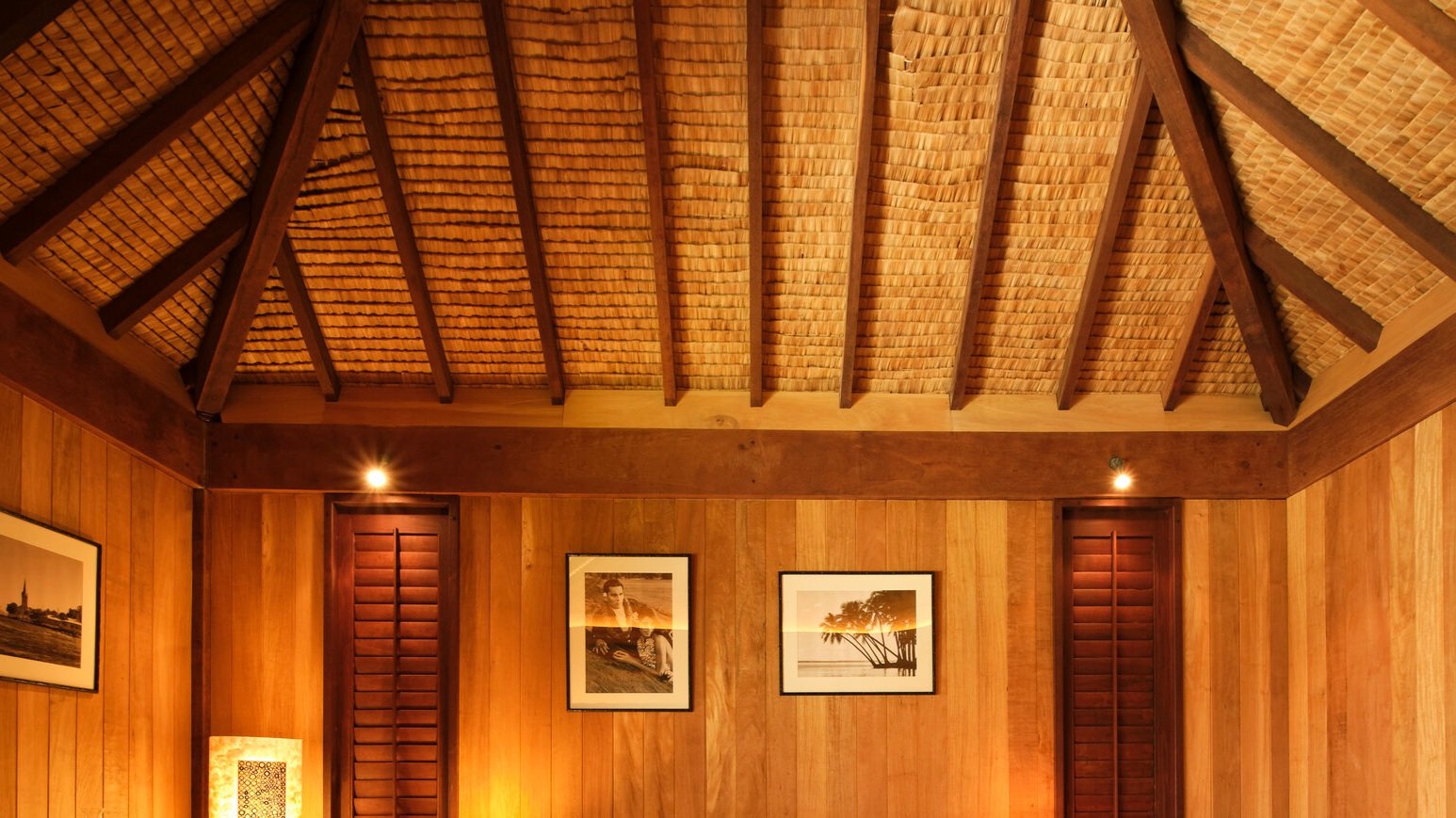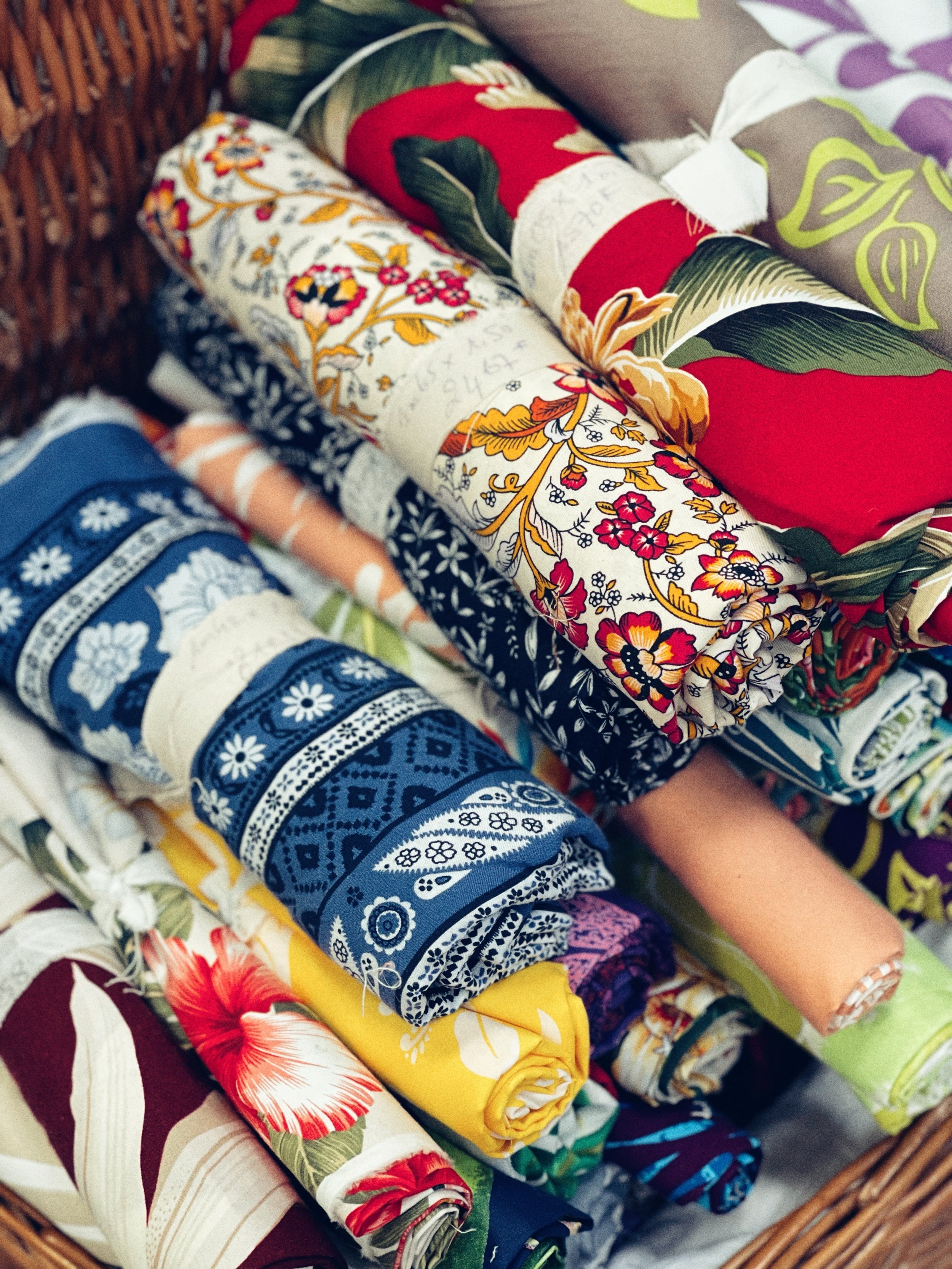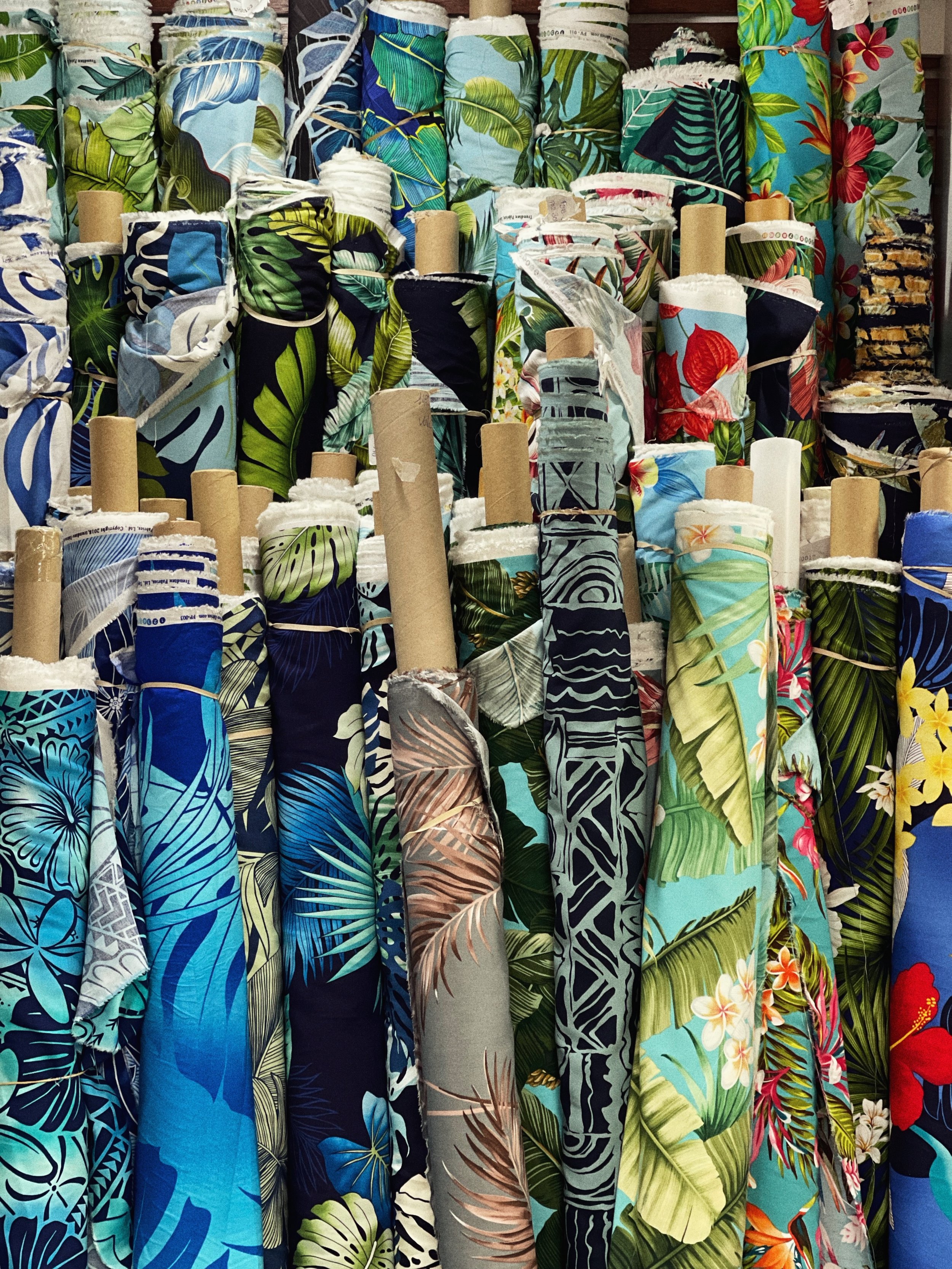
PORTRAITS
Ginette Mo’orea is all about the people we meet and friendships created over the years. In these series of interviews, we introduce you to personalities that are as different as they are solar. Locals, artists, craftsmen and lovers of French Polynesia...-
President of the Polynesian Art Crafts Association and the Polynesian Art Jewelry Association. She is a wonderful craftswoman at the Pape'ete market and owner of Fauura Créations.
Discover her interview.
-
From his years spent managing the Tetiaroa Marlon Brando hotel, Jean-Louis is now dedicated to managing Ginette Mo’orea. A true enthusiast of Polynesian craftsmanship, he is the ultimate guide to finding the most charming and authentic artisanal pieces.
Discover his interview.
-
Roselyne, propriétaire de la boutique de tissus Vénus à Pape’ete nous raconte comment elle à découvert son “amour” pour le textile et la mode Polynésienne.
-
Owner of Manapearl.
Interview coming soon.
Roselyne, owner of the Venus fabric shop in Pape'ete tells us how she discovered her "love" for Polynesian textiles and fashion.
Ginette Mo’orea: How did you start in textiles? By passion or by chance?
Roselyne: I was not really attracted by the world of textiles originally, I had planned to go to the United States to pursue my studies as my brother was living in San Francisco. I wanted to learn English, and see the country! However, I met Jacques (my husband), whom I fell in love with and his family was in this industry. They wanted to open a second store, and they made me in charge of it then, so I abandoned my original plans and devoted myself to our Venus store out of love. And then over time, I gradually became passionate about fabrics and prints.
Roselyne
GM: What is your process for choosing the fabrics you offer? It's still a real Polynesian taste with a twist between traditional and amazing fabrics that you don't see anywhere else.
R: I always begin with the authentic side of Polynesia! So when I place my orders with my suppliers, we look at the traditional prints, then together we rework some of them to give them a more unique, and why not modern twist. So they naturally impose quantities and colors for these special editions, and then they also often have prints that I love and that we order directly, it varies.
Finally, I also watch a lot of what is being done online, it allows me to inspire myself through a larger horizon and modernize what we offer.
GM: How is your clientele made up?
R: I have a great local (and loyal!) clientele in Tahiti. You noticed here we like to make our clothes, so women often come to get fabrics. Besides, it is very common to have seamstresses here, and many even improvise themselves as seamstresses!
For almost 30 years I had a ready-to-wear department, with a stylist and a model maker and we made the models, we created. I quit about 5 years ago, but that shows you how much we appreciate the process of creating a new dress for an occasion, or an item of clothing!
GM: Why do you think women like to make their own clothes?
R: I will say that it is cultural, at the time already the ladies made a lot of dresses for all occasions. I remember when I was young, my mother made our dresses for us by the employees of our stores, and what a pleasure it was to make our most beautiful dresses for the end-of-the-year celebrations!
And yes, it's a way of expressing your personality and in the trade, it's particularly expensive, so they have the dresses they really want to be made.
GM: You are of Chinese origin, how did your family arrive in Polynesia?
R: It was through my grandfather who first arrived in Makatea, from Canton, he was an accountant, and the island was known for its phosphorus. Subsequently, he brought my grandmother and they settled in Raiatea where they opened businesses and in particular supermarkets. Many Chinese left China, to go elsewhere, to hope for a better future, and I think he was a happy man here in Polynesia. He loved life and I think he took full advantage of it…
GM: What was your experience growing up in Polynesia coming from a Chinese family?
R: I grew up as a Polynesian! I must say that in the islands it was cooler, we were all much closer and we mixed a lot with locals, Tahitians, Polynesians… I grew up in Raiatea until I was 18 when I left to study in Tahiti. Going to school here makes you live like a Polynesian, by our friends, their families etc. Then I met Jacques, my husband, and I got into textiles!
GM: What is your favorite island or place in French Polynesia?
R: My island, the one where I was born: Raiatea. I love nature which is so beautiful, people are cool, much less stressed than in Tahiti!
GM: What must you see absolutely in Raiatea?
R: Already, there is no beach, you have to go to the motus where you can swim. And then if there is one thing to do, it is Mount Temehani, where there is the only flower: The Tiare Apetahi. By the way, I have a fabric with this unique flower that only grows there!
Do you know the legend of the Tiare Apetahi? You can discover it here.
GM: An island that you like to visit and return to?
R: I really love Fakarava, in the Tuamotus! I went back there last year, with my husband we like to go to the Havaiki pension.
GM: What does Polynesia mean to you?
R: An incredible sense of hospitality, cool and nice people who say hello to you and above all who let you cross at the pedestrian crossing!
Besides, it reminds me of this mango stand we came across recently, there were no vendors or vendors, so they had put up a sign: "500 Francs for 6 mangoes, and if you don't pay you your stomach will hurt!”








